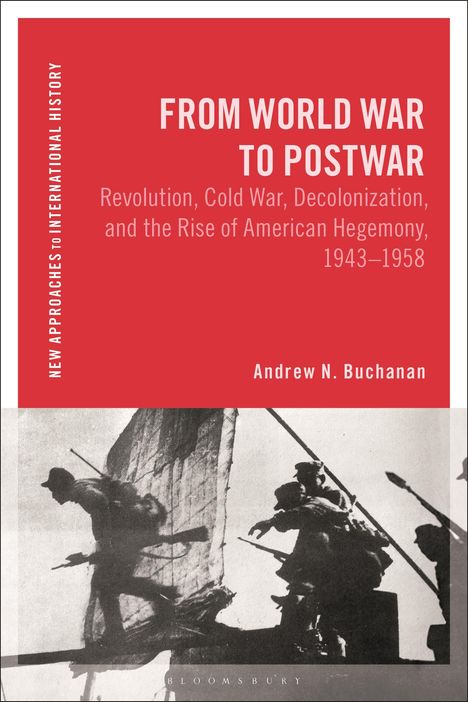Andrew N. Buchanan: From World War to Cold War: Revolution, Cold War, Decolonization, and the Rise of American Hegemony, 1943-1958
From World War to Cold War: Revolution, Cold War, Decolonization, and the Rise of American Hegemony, 1943-1958
Buch
- Revolution, Cold War, Decolonization, and the Rise of American Hegemony, 1943-1958
- Herausgeber: Thomas Zeiler
Lieferzeit beträgt mind. 4 Wochen
(soweit verfügbar beim Lieferanten)
(soweit verfügbar beim Lieferanten)
EUR 99,30*
Verlängerter Rückgabezeitraum bis 31. Januar 2025
Alle zur Rückgabe berechtigten Produkte, die zwischen dem 1. bis 31. Dezember 2024 gekauft wurden, können bis zum 31. Januar 2025 zurückgegeben werden.
- Bloomsbury Publishing PLC, 12/2023
- Einband: Gebunden
- Sprache: Englisch
- ISBN-13: 9781350240216
- Bestellnummer: 11151126
- Umfang: 288 Seiten
- Gewicht: 454 g
- Maße: 234 x 156 mm
- Stärke: 25 mm
- Erscheinungstermin: 28.12.2023
- Serie: New Approaches to International History
Achtung: Artikel ist nicht in deutscher Sprache!
Weitere Ausgaben von From World War to Cold War: Revolution, Cold War, Decolonization, and the Rise of American Hegemony, 1943-1958
Klappentext
Offering a global account of the 'long' World War II, this book challenges conventional narratives that picture a clearly defined war period (1939-1945) followed by a distinct postwar era dominated by the encroaching cold war. Arguing instead that while some aspects of the war did end abruptly in 1945, in many corners of the world 'war' bled directly and raggedly into the 'postwar' such as Allied Occupation in Italy, the civil war in Greece, the rise of US hegemony and struggles for national liberation in India. From World War to Postwar shows how critical developments in the latter half of the 20th century were a direct result of the Second World War, and reconceptualizes the conflict as an intersecting series of regional wars as well as an overarching world war.Offering new ways to think about how 'the war' shaped the second half of the 20th century, this book reaches into those regions often overlooked in the study of WWII. Showing how wartime relations between the US and Latin America played a crucial role in the worldwide development of US hegemony, how WWII accelerated the retreat from Empire in Sub-Saharan Africa and how it encouraged the growth of anti-colonialism in regions around the world, Buchanan offers a truly global account of the outcomes of the largest conflict in human history, and challenges the temporal boundaries in which we view it.


